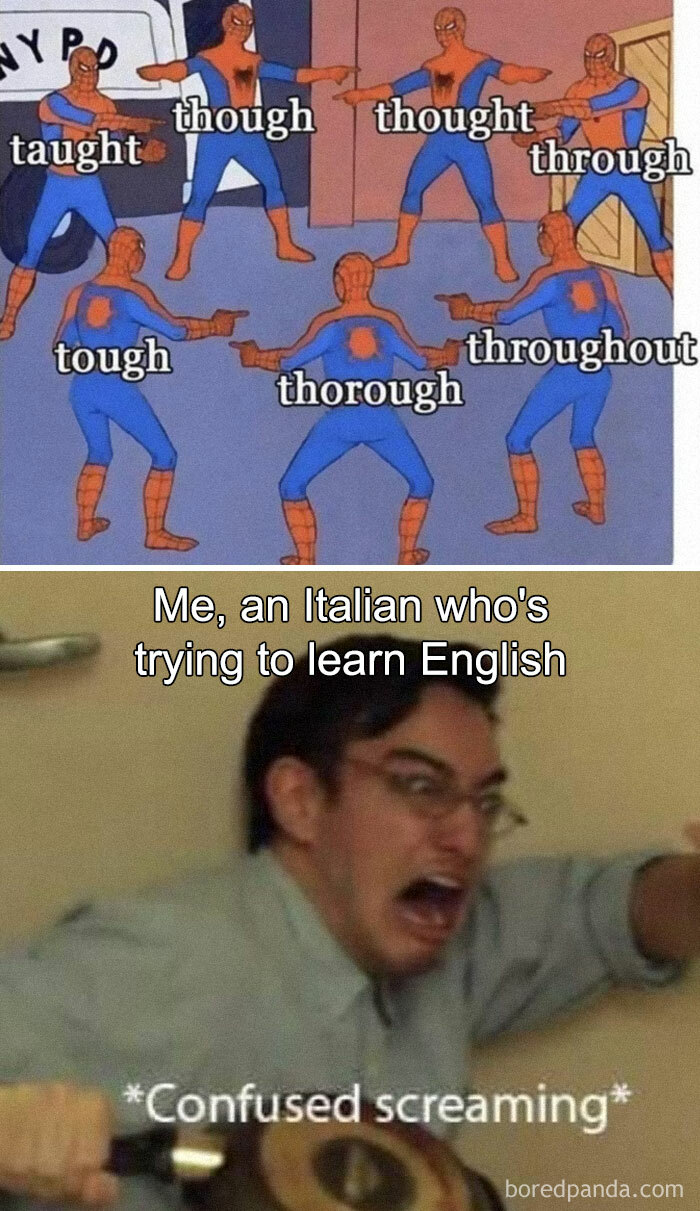this post was submitted on 07 Oct 2023
1010 points (97.6% liked)
Memes
8314 readers
1786 users here now
Post memes here.
A meme is an idea, behavior, or style that spreads by means of imitation from person to person within a culture and often carries symbolic meaning representing a particular phenomenon or theme.
An Internet meme or meme, is a cultural item that is spread via the Internet, often through social media platforms. The name is by the concept of memes proposed by Richard Dawkins in 1972. Internet memes can take various forms, such as images, videos, GIFs, and various other viral sensations.
- Wait at least 2 months before reposting
- No explicitly political content (about political figures, political events, elections and so on), !politicalmemes@lemmy.ca can be better place for that
- Use NSFW marking accordingly
Laittakaa meemejä tänne.
- Odota ainakin 2 kuukautta ennen meemin postaamista uudelleen
- Ei selkeän poliittista sisältöä (poliitikoista, poliittisista tapahtumista, vaaleista jne) parempi paikka esim. !politicalmemes@lemmy.ca
- Merkitse K18-sisältö tarpeen mukaan
founded 2 years ago
MODERATORS
you are viewing a single comment's thread
view the rest of the comments
view the rest of the comments


It's easier to understand when you look at English history and realize that English is essentially three different languages (old Saxon, Norse, and Norman) badly put together (a great example of this being meats having different names than the animals they come from, since the people farming said animals spoke Saxon, but the people eating them spoke Norman), with plenty of Latin, Greek, French, and other languages sprinkled on top, all written with a limited alphabet that's incapable of properly reflecting the pronunciation of those languages' words.
It doesn't help, though ,that at some point the English alphabet got simplified with things like ō becoming things like oo, without taking into account that things like oo were already being used to represent different sounds, or that at one point over a period of a few decades in the middle ages for some reason all English speakers seemed to decide to randomly switch around the pronunciation of all their vowels without changing how they wrote them (!?), or that, while all languages borrow words from others, unlike most others English for some reason doesn't bother to adapt their orthography or grammar (a French or Catalan speaker will have no problem understanding why façade is written like that and pronounced fassade instead of fackade, for instance, but I'm sure most English speakers won't be so lucky, especially if they write it facade... and then you've got things like fiancé, or the plural of radius being radii, and so on)... and you end up with the oos in book, blood, door, and boot all being pronounced differently... and, for some reason (probably the borrowing one), the one in brooch being pronounced a particular fifth different way... 🤷♂️
Book and blood have the same oo's for me by the way. I'm from the north east. But I understand southerners will say book differently. So not only is everything you said is true we also have a crazy amount of local differences across the country with very short distances between them at times.
I tried seeing how id pronounce it if they were the same and i feel like it was roughly /ɜ/, what is it for you
Book is exactly the same as buck in my accent. So blood would be like blud. Sorry i don't know phonetics.
Love this little bit of cheeky language history!
What's the difference between Norse and Norman?
Norse is old Norwegian/Danish kinda.
Norman is old French.
The Normans were northmen (aka Scandinavians) that were allowed to settle in the Normandy (north west France). (They were the ruling class, the inhabitants from before continued to live there).They then adopted the French language.
I explain to people here that - in modern terms - it's mixture of french, dutch, and welsh - you forgot the celtic /gaelic root (whatever you want to call it).
Yeah, I sort of forgot the Angle part of Anglo-Saxon, didn't I..?
(Plus, there was probably quite a bit of Latin already there before the Norse and the Norman, at least south of Hadrian's wall, though far from enough to make Old English a Romance language... all in all English has a very complex history.)